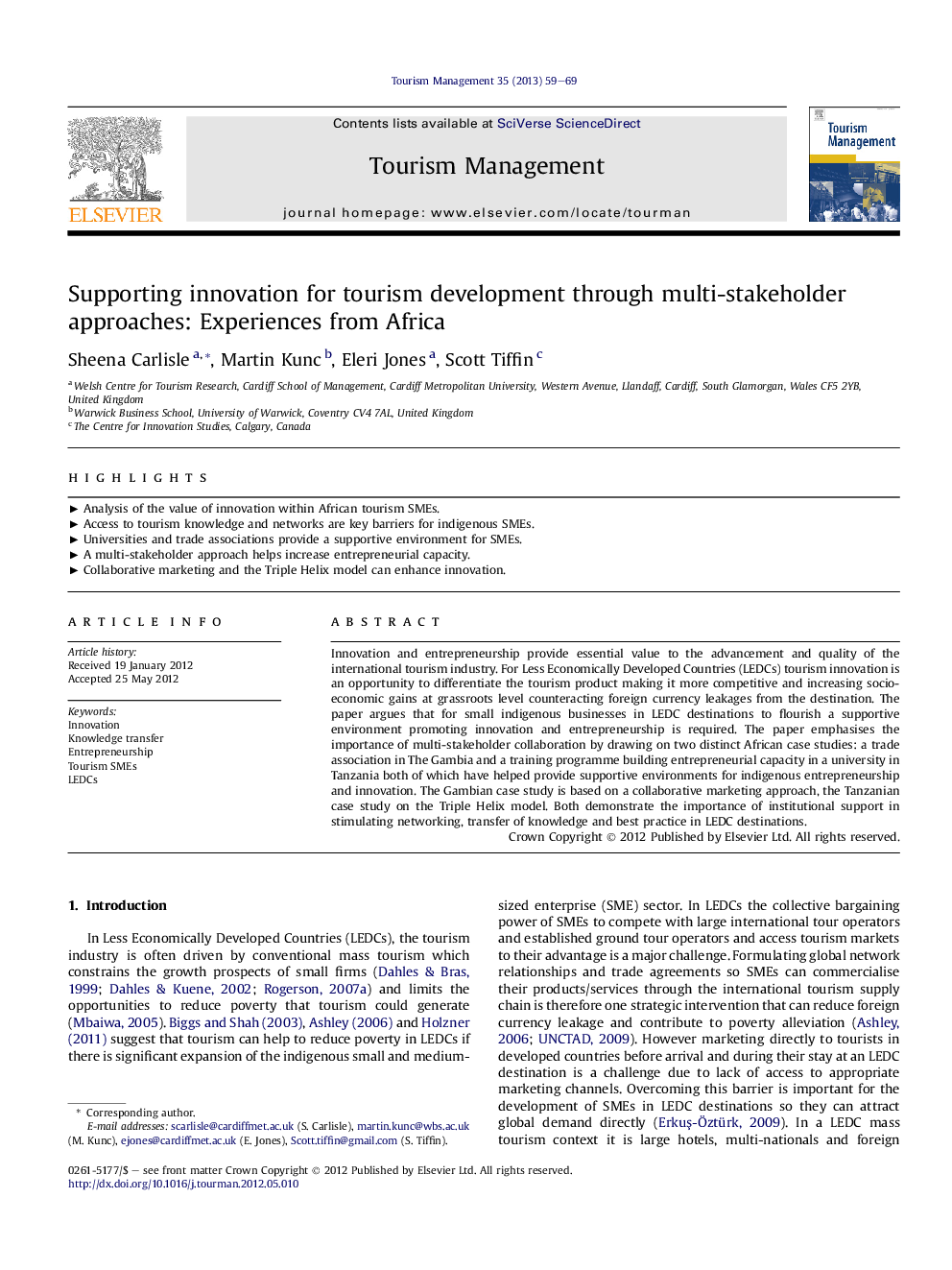| Article ID | Journal | Published Year | Pages | File Type |
|---|---|---|---|---|
| 1012177 | Tourism Management | 2013 | 11 Pages |
Innovation and entrepreneurship provide essential value to the advancement and quality of the international tourism industry. For Less Economically Developed Countries (LEDCs) tourism innovation is an opportunity to differentiate the tourism product making it more competitive and increasing socio-economic gains at grassroots level counteracting foreign currency leakages from the destination. The paper argues that for small indigenous businesses in LEDC destinations to flourish a supportive environment promoting innovation and entrepreneurship is required. The paper emphasises the importance of multi-stakeholder collaboration by drawing on two distinct African case studies: a trade association in The Gambia and a training programme building entrepreneurial capacity in a university in Tanzania both of which have helped provide supportive environments for indigenous entrepreneurship and innovation. The Gambian case study is based on a collaborative marketing approach, the Tanzanian case study on the Triple Helix model. Both demonstrate the importance of institutional support in stimulating networking, transfer of knowledge and best practice in LEDC destinations.
► Analysis of the value of innovation within African tourism SMEs. ► Access to tourism knowledge and networks are key barriers for indigenous SMEs. ► Universities and trade associations provide a supportive environment for SMEs. ► A multi-stakeholder approach helps increase entrepreneurial capacity. ► Collaborative marketing and the Triple Helix model can enhance innovation.
